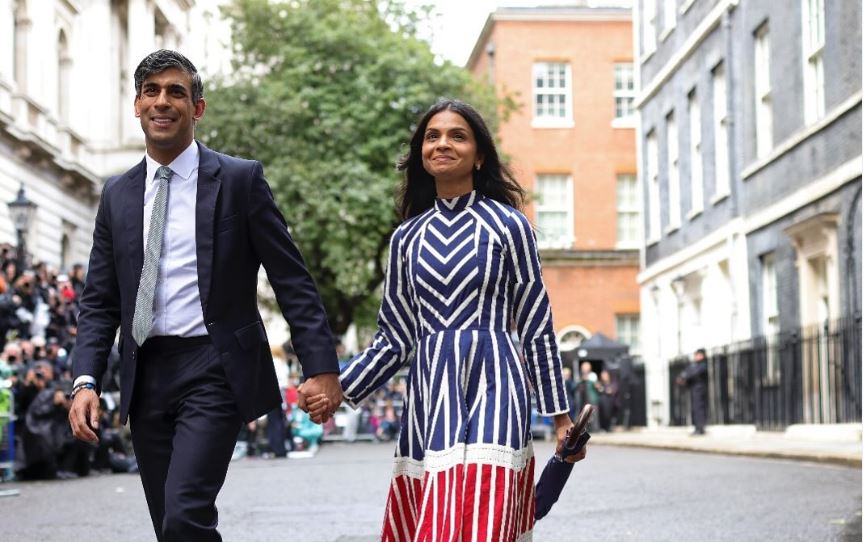Rishi Sunak is the former Prime Minister of the United Kingdom and current Leader of the Opposition. He is widely recognized for his influential role in British politics and his substantial personal wealth. With a successful career in finance and a high-profile marriage to Akshata Murty, Sunak’s net worth has long been a topic of public curiosity.
Rishi Sunak’s Net Worth
Rishi Sunak’s net worth is estimated to be around £855 million, placing him among the wealthiest British political figures. This fortune is attributed to his background in investment banking and hedge funds and his marriage to Akshata Murty. Before entering the political arena, Sunak worked at Goldman Sachs and TCI Fund Management, one of London’s most popular hedge funds. His experience and earnings in the financial sector established a solid financial foundation long before his government involvement.
Role of Akshata Murty’s Wealth in Sunak’s Net Worth
Much of Sunak’s net worth can be attributed to his wife, Akshata Murty, whose assets contribute substantially to their combined fortune. Murty is the daughter of N.R. Narayana Murthy, the founder of Infosys, an Indian multinational IT corporation. As an heiress, Murty holds a significant stake in Infosys, valued at approximately £690 million, adding millions to their household income through dividends and investments.
Public Perception of Sunak’s Wealth
Sunak’s wealth has had a complex effect on his public image. Some view his financial background as an asset, believing it gives him a deep understanding of the economy. However, others see it as a potential disconnect from the everyday financial struggles of the public, particularly given the UK’s recent cost-of-living challenges. As Prime Minister, Sunak faced scrutiny over his approach to economic policies, especially those affecting middle- and lower-income citizens. His wealth, along with his wife’s non-domicile tax status, was widely discussed, especially as the government worked to support citizens during periods of economic hardship.
Criticism intensified during the COVID-19 pandemic when the UK government introduced economic support measures. Sunak’s decisions during this period were widely debated, with some questioning if his wealth affected his empathy toward those financially struggling. Additionally, his wife’s tax status and non-domicile claims became a focal point of public debate, highlighting the complexities of substantial wealth in public office.
Recent Developments in Sunak’s Political Career
After his tenure as Prime Minister, Sunak assumed the role of Leader of the Opposition and head of the Conservative Party. Since taking on this new role, he has focused on various issues, from inflation and economic stability to Conservative policies that aim to address the country’s ongoing financial concerns. Despite stepping back from the role of Prime Minister, he continues to influence UK politics as the opposition leader, often voicing his stance on fiscal responsibility and economic reform.
Sunak’s views on taxes, public spending, and economic relief remain significant talking points. His background in finance often shapes his approach, which has sometimes led to debate within political and public spheres.
Sunak’s Transparency in Financial Affairs
Sunak has made efforts to be transparent about his financial situation, although questions remain. Calls for greater clarity about his and his family’s financial interests led him to take a more open approach. His wife’s non-domiciled tax status sparked significant debate, ultimately prompting her to clarify her obligations.
While Sunak has disclosed his tax payments and earnings from his political roles, public curiosity about his financial connections persists. This scrutiny has encouraged him to ensure his political insights remain separate from personal wealth, asserting that his family’s wealth does not impact his public policy stances.


